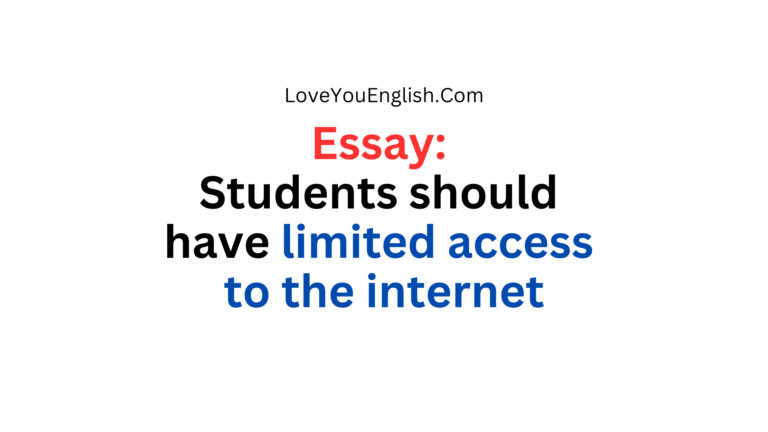Essay Writing: The Rise and Evolution of Mobile Phones
Essay Writing: The Rise and Evolution of Mobile Phones
Mobile phones are now a big part of our everyday lives, changing how we talk to each other, do our jobs, and connect with the world.
They started off as basic devices just for talking, but now we have smartphones that can do so much more.
This essay will look at how we use mobile phones, their effects on different areas of life, and how this technology keeps changing.
Communication
Even though mobile phones were made for talking, we now use them in many different ways.
Texting, or SMS, became a quick way to send messages, and then it grew into multimedia messaging (MMS) for sharing pictures and videos.
With smartphones and the internet, apps like WhatsApp, Facebook Messenger, and WeChat let us send texts, make voice calls, and even video chat for free with people all over the world.
Services like Skype and FaceTime have made it even easier to communicate, allowing us to have high-quality video calls and group chats.
These improvements have made it cheaper and easier to stay in touch with friends, family, and coworkers no matter where they are.
Mobile phones are also super important in emergencies. Being able to call for help from almost anywhere has saved many lives.
In some places, there are emergency SMS services for people who can’t make voice calls, which makes mobile technology even more helpful in keeping us safe.
Accessing Information and Browsing the Internet
Thanks to the internet, mobile phones are now amazing tools for finding information.
With web browsers on smartphones, people can look up facts, read the news, and use online resources wherever they are.
This quick access to information has changed the way we learn, make choices, and keep up with what’s happening in the world.
Websites designed for mobile use and special apps for news, encyclopedias, and educational content make it super easy to find trustworthy information fast.
This has opened up knowledge to more people, especially in places where traditional learning materials might not be available.
Social Media and Connections
Mobile phones are now the main way people use social media.
Apps like Facebook, Instagram, Twitter, and LinkedIn have transformed how we interact, share our lives, and create both personal and professional connections.
The ability to quickly post photos, videos, and updates has led to a culture where we are always connected and sharing in real-time.
Using social media on mobile devices has also become a strong tool for activism, helping people organize movements quickly and share important information.
It has empowered underrepresented groups and sparked global discussions on significant topics.
Mobile phones have turned into mini entertainment hubs. With music streaming apps like Spotify and Apple Music, people can listen to tons of songs anytime they want.
Video platforms like YouTube, Netflix, and TikTok offer a huge variety of videos, from quick clips to full movies, keeping us entertained for hours.
The mobile gaming scene has exploded, featuring everything from easy puzzle games to intricate multiplayer adventures.
Since we can carry our phones everywhere, we can enjoy entertainment whenever we have a moment, whether we’re on the bus, in line, or just chilling at home.
Photography and Videography
Having high-quality cameras built into our phones has changed the game for photography and videography.
For lots of people, their phone is now their go-to camera, always ready to snap pictures and capture special moments.
Cool features like portrait mode, night mode, and different lenses make it possible for anyone to take amazing photos.
Mobile video has also seen huge improvements, with many phones now capable of shooting in 4K quality.
This has sparked a trend in mobile filmmaking, with some pros even using smartphones to create entire films.
Sharing photos and videos straight from our phones to social media or cloud storage has transformed how we capture and share our experiences.
It has also led to new ways of visual storytelling, like Instagram Stories and TikTok clips.
GPS technology in smartphones has made standalone navigation devices almost unnecessary.
Applications like Google Maps and Apple Maps offer step-by-step directions for driving, walking, and using public transport.
These tools have simplified the process of discovering new areas and locating interesting spots, changing the way we find our way around.
Location services go beyond just helping us navigate.
They also support features like suggestions for nearby businesses, ride-sharing options, and games that use your location.
This technology has improved safety too, allowing emergency services to find people in need more accurately.
Mobile phones are now crucial in the business sector. With email, calendar applications, and productivity tools like Microsoft Office and Google Workspace, professionals can work from virtually anywhere.
Apps for project management and collaboration help teams work together even when they are far apart.
Mobile banking and payment applications have changed how we handle money.
Many individuals now use their phones for tasks like checking their bank accounts, making payments, and transferring funds.
This has been especially beneficial in developing nations, where mobile banking has given financial access to people who previously had none.
The gig economy has thrived thanks to mobile technology, with apps linking service providers to customers for services like ride-sharing and food delivery.
This has opened up new job opportunities and transformed the way many services are offered.
More essays:
- Raksha Bandhan Essay for School Students and Children
- English Essay Writing: Lal Bahadur Shastri
- Essay About Festivals of India for Students
- Essay About Unemployment: Economic and Social Challenge
- Essay Writing: The Importance of Discipline
Health and Wellness
Mobile phones are now super helpful for taking care of our health.
With fitness tracking apps and wearable gadgets, people can keep an eye on how much they move, how well they sleep, and other important health details.
There are also nutrition apps that assist with planning meals and counting calories.
Medical apps give information about symptoms and health conditions, and some even let you have video calls with doctors.
Certain apps can use the phone’s sensors to check vital signs or spot possible health problems.
Mental health apps are gaining popularity too, offering things like meditation guides, mood tracking, and access to therapy, which shows that more people are recognizing the importance of mental health.
Education and Learning
Mobile phones have changed the way we learn and study.
There are educational apps for everything from learning new languages to coding, making it easier for anyone to learn on their own.
Many schools now use mobile apps for things like checking class schedules and turning in assignments.
Since phones are portable, you can learn wherever and whenever you want.
Podcasts and audiobook apps let you learn while you’re on the go or doing chores.
Plus, video tutorials on sites like YouTube have become a favorite way to pick up new skills.
In many developing countries, mobile phones play a crucial role in giving access to educational materials in places where schools and other educational facilities are scarce.
With the rise of the Internet of Things, mobile phones have become key devices for managing smart home technology.
People can use their phones to change the temperature on smart thermostats or keep an eye on security cameras from anywhere.
This technology also helps in other ways, like finding lost items with Bluetooth trackers or controlling drones and other gadgets from a distance.
Mobile phones are also being used more and more for environmental monitoring and citizen science initiatives.
There are apps that let people help with scientific research by noting wildlife sightings, observing weather changes, or reporting pollution problems.
The sensors in smartphones, like accelerometers and barometers, can gather data for scientific studies, turning millions of phone users into potential contributors for big research projects.
Augmented Reality (AR) and Virtual Reality (VR)
AR and VR are still pretty new on mobile phones, but they have a lot of exciting possibilities.
AR apps can add digital stuff to what you see in real life using your phone’s camera, which can be super helpful for things like gaming or planning how to arrange your room.
Mobile VR lets you put your phone into a headset, making it easier for people to dive into virtual worlds.
As technology keeps getting better, we can expect these apps to become even cooler and more common.
Challenges and Concerns
Even though mobile phones have many advantages, there are some worries too.
Privacy and data security are big issues since phones gather a lot of personal information.
Plus, many mobile apps can be addictive, which raises concerns about mental health and how young people develop socially.
There are also worries about the environment, especially when it comes to making and throwing away phones, as well as the energy used by the networks that keep them running.
Future Developments
Mobile phone technology is always growing.
New things like 5G networks are coming, which will make everything faster and help create new uses like self-driving cars and remote surgeries.
Improvements in artificial intelligence will likely make phones even smarter, with better virtual assistants and the ability to predict what you need.
We might even see flexible and foldable screens, which could change how we think about phones and tablets.
Conclusion
Mobile phones have really changed since they first started as just tools for talking.
Nowadays, they are involved in almost everything we do, from chatting with friends and finding information to working, studying, and having fun.
As technology keeps getting better, the ways we use mobile phones will probably grow even more, influencing our society in big ways.
Even though there are still some problems, especially with privacy, security, and using them responsibly, mobile phones have made a huge difference overall.
They have connected people all over the globe, made it easier for everyone to access information and services, and given billions of people powerful technology right in their hands.
Looking ahead, mobile phones will surely keep being a key part of how we connect with the world around us.







